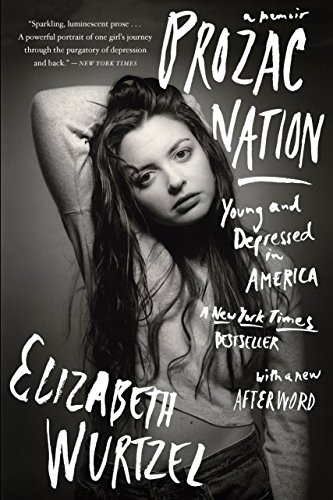Author, essayist, journalist, and Gen X icon Elizabeth Wurtzel died earlier this week, after several years of living with cancer and its recurrence. She was only 52. For an intimate look at her life, I would encourage you to seek out any number of heartfelt and honest remembrances to this iconoclastic writer, this fierce and uncompromising woman, which are being written this week by friends and colleagues who knew her better than most.
Even for those of us who never knew her, Wurtzel's influence was everywhere, especially during my college years in the epic decade of the nineties, thanks to her first memoir, Prozac Nation, from 1994. I can remember standing against the shelves in some Borders or other, lost in the rawness of her confessional tale of depression. It was raw at a time when raw was not socially acceptable. When it came out, establishment critics at places like the New York Times were ripping her and the book to shreds with reviews that couldn't have been anymore dismissive of or downright cruel about people suffering from mental illness. I hope those critics are around today and that her death brings their awful reviews back into public consciousness, for all to see. That's the era we grew up in, my generation, when it was okay to make fun of people, writers, who tried to make sense of their struggles with mental illness.
What those critics couldn't understand then seems so blatantly obvious now you wonder how they ever got it so wrong. At its core, the memoir—a literary genre with its share of bombs, just like any genre—or, more specifically, a memoir like the kind Wurtzel wrote, is at its core all about an individual expressing the personal in order to uncover some universal truths of this, our shared human experience. To help the writer, and us, feel less alone. We like to think we're all different, but in so many ways we are so much alike. We suffer, we love, we are anxious and depressed, we are filled with dangerously vibrant emotions, we fall and we get back up again, each and every one of us. That's what Wurtzel wrote about, consistently, for almost three decades. Who can't find something to relate to in that?
Wurtzel told her friend and fellow writer Molly Oswaks, “If you want to make it as a writer, you have to be willing to kill your mother.” Oswaks clarifies,
"She did not mean this literally. She meant that you had to be willing to say the difficult and upsetting thing, to risk hurting someone’s feelings in the name of honesty, to not fear the fallout of living an authentic life and writing about it, warts and all."That's the key. That's why we do this, why we write, and not just write, but rip out our insides and throw them onto the page or the screen, for any and everyone to read. We feel compelled to make sense of some inner truths residing inside us, which we can't fully comprehend until we write the words that make them make sense. Make sense to us, and, if we're lucky, to other similarly afflicted humans.
One of my favorite Wurtzel quotes feels even more powerful now that she's gone:
"I have always made choices without considering the consequences, because I know all I get is now."She was right. All we get is now. A cancer survivor myself, I understand this more than most. I'm always going to remember Wurtzel's words. They're a perfect reminder to live life everyday like you're dying. And to write about all of it along the way, every messy, ugly detail. Consequences be damned.


Comments
Post a Comment